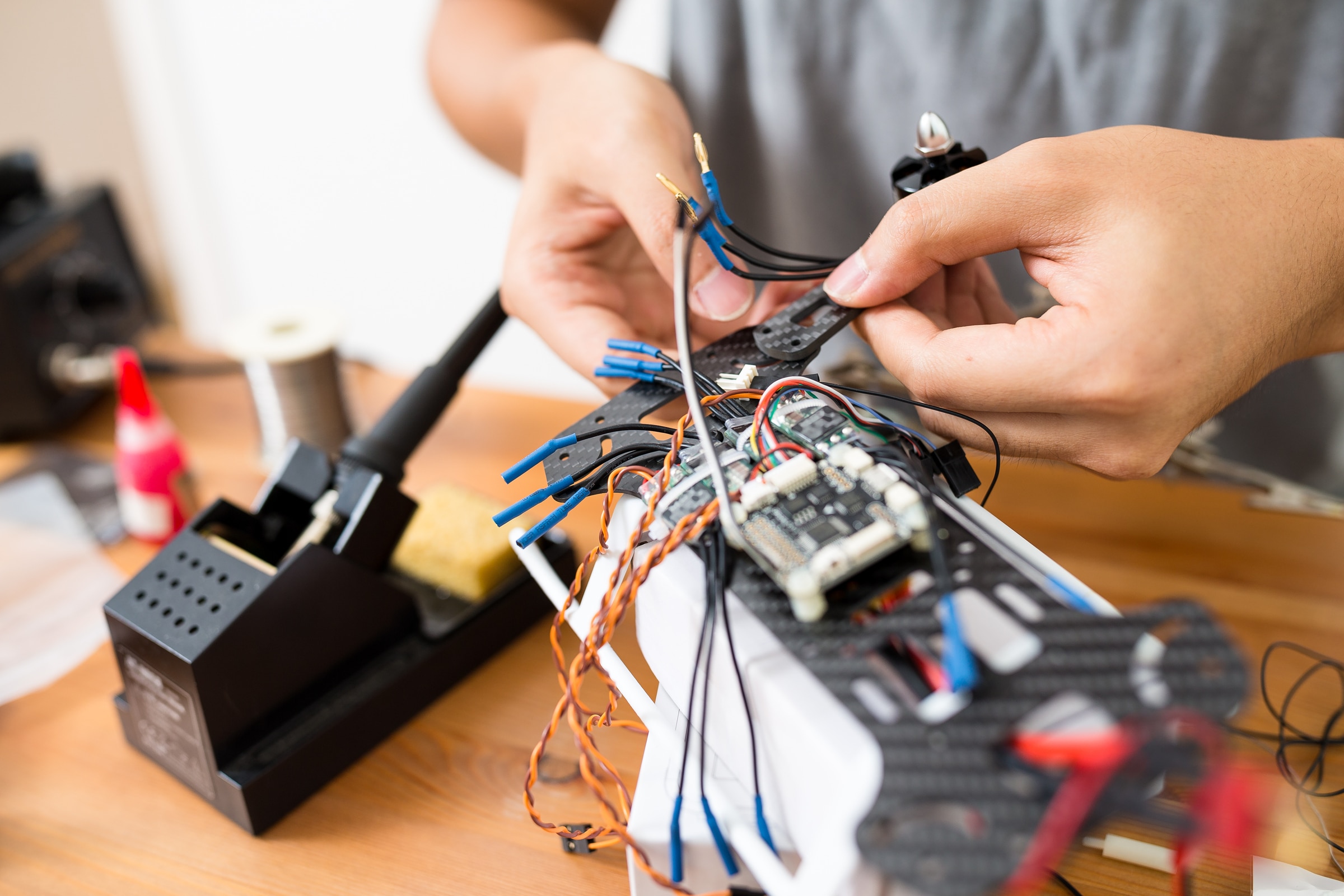How to ensure a UK business complies with the legal requirements for operating drones for delivery services?

In the ever-evolving landscape of technology, businesses continually look for innovative ways to improve their operations. With the advent of drones, a new horizon of opportunities has opened up, especially within the realm of delivery services. However, to utilise these unmanned aircraft systems (UAS) commercially, UK businesses must adhere to specific regulations set forth by the Civil Aviation Authority (CAA). This guide will delve into the legal intricacies of operating drones for delivery services, focusing on key areas such as risk assessments, safety protocols, operational categories and more.
Understanding CAA's Regulatory Framework
As the UK's independent aviation regulator, CAA has formulated a detailed regulatory framework for drone operations. Understanding and complying with these regulations is the first step towards operating a drone for delivery services.
The CAA categorises drone operations into three categories based on the level of risk involved: The Open, Specific and Certified categories. Each category has its unique set of requirements. For instance, the Specific category requires operators to conduct a detailed risk assessment before flying their drones.
Moreover, the drone operator must possess the requisite permissions from the CAA, especially if the drones will be flown in areas with people or other aircraft.
Acquiring Necessary Permissions and Licences
To legally fly a drone for commercial purposes in the UK, one must acquire the necessary permissions and licences from the CAA. The type of permission required depends on the category of operation.
If you fall under the Specific category, you will need an Operational Authorisation from the CAA. This requires a thorough demonstration of your ability to operate your drone safely, often through a comprehensive risk assessment and a documented operations manual. It's also crucial to have the drone operator certified with a General Visual Line of Sight Certificate (GVC) or an A2 Certificate of Competency (A2 CofC).
Conducting Risk Assessments
Risk assessments are integral to ensuring safety while flying drones for delivery services. The CAA places high importance on conducting a thorough risk assessment before any flight. This involves evaluating the potential dangers that might be posed by the drone operation and how these risks can be mitigated.
Furthermore, risk assessments are factored into obtaining Operational Authorisation for the Specific Category. Therefore, it's imperative to understand how to conduct a comprehensive risk assessment that meets the CAA's standards.
Ensuring Safety and Operational Standards
Safety is paramount in any drone operation. When it comes to flying drones for delivery services, implementing safety measures and maintaining operational standards is essential.
The CAA requires drone operators to follow a series of safety regulations, including keeping the drone within the visual line of sight, not exceeding certain altitude and distance limitations, and avoiding flights over congested areas or gatherings of people, unless specifically authorised.
Moreover, drone operators must respect privacy laws and obtain necessary permissions if their flight path includes private property or protected areas.
Investing in Quality Drones
Lastly, the type of drone you utilise for your delivery services can significantly influence your legal compliance. Investing in quality drones, such as those from recognised manufacturers like DJI, ensures that the drone is built to the highest safety and operational standards.
Quality drones come with advanced features like obstacle avoidance systems, precise GPS, reliable battery life, and stable flight performance, all contributing to safer and more efficient operations.
Moreover, the CAA encourages the use of drones with specific safety features, such as 'geo-fencing' capabilities, which can prevent the drone from entering restricted areas automatically.
While unlocking the potential of drones for your business operations, it is crucial to ensure your operations are in full compliance with the legal regulations. By understanding the CAA's regulatory framework, acquiring necessary permissions and licences, conducting thorough risk assessments, ensuring safety and operational standards, and investing in quality drones, you can navigate the legal complexities of operating drones for delivery services.
Abiding by Drone Laws with Operational Authorisation and Drone Training
When navigating the realm of commercial drone use in the United Kingdom, adherence to drone laws laid out by the Civil Aviation Authority is not just a suggestion, but a hard requirement. Predominantly, the acquisition of Operational Authorisation and drone training is essential to operate within the legal bounds.
For those in the Specific category of operation, acquiring Operational Authorisation from the CAA is obligatory. This acquisition process necessitates a clear demonstration of your drone operating abilities, often validated through a comprehensive risk assessment and a well-documented operations manual. Drone pilots who fall within the Open category are not required to obtain Operational Authorisation but must ensure their drone model bears a class marking.
Equally critical is the drone training for the remote pilot. The CAA mandates that pilots operating under both the specific and open categories must possess a General Visual Line of Sight Certificate (GVC) or an A2 Certificate of Competency (A2 CofC). The GVC is a remote pilot competency certification, while the A2 CofC is a certificate for flying small unmanned aircraft in the close proximity of uninvolved people. Both certifications require undergoing a training course with an approved training organisation, passing an exam and a practical flight assessment.
These rigorous training prerequisites ensure that every drone pilot is well-versed with the drone laws, safety protocols and operational standards necessary for operating drones in the diverse landscapes of the United Kingdom.
Using Drone Models with Advanced Safety Features
The quality of the drone model you opt to use for your delivery services can significantly impact your ability to comply with legal requirements. Investment in high-quality drones, such as those manufactured by recognised brands like drones DJI, is crucial to ensure that your unmanned aircraft is built with the highest safety and operational standards in mind.
High-quality drones often come equipped with advanced safety features. For instance, obstacle avoidance systems can help your drone navigate safely around any obstacles in its flight path, while precise GPS can ensure your drone stays on its pre-determined course. Reliable battery life can prevent your drone from running out of power mid-flight, and stable flight performance can ensure your drone can withstand a variety of weather conditions.
A valuable feature that the CAA endorses is 'geo-fencing' capabilities. This high-tech feature can prevent your drone from unintentionally entering restricted areas, ensuring that your drone stays within the legal limits of its flight path.
By choosing a drone model with these advanced safety features, you can ensure that your operations comply with all legal regulations and enhance the efficiency and reliability of your drone delivery services.
Conclusion: The Key to Compliant Drone Operations
In the rapidly evolving world of technology, drones offer a promising avenue for businesses to enhance their delivery services. However, to capitalise on this potential, businesses must navigate the legal intricacies of operating drones for delivery services in the United Kingdom.
By understanding and complying with the CAA's regulatory framework, acquiring the necessary Operational Authorisation and drone training, conducting comprehensive risk assessments, ensuring safety with advanced drone models, and respecting the rights of uninvolved people, businesses can ensure their drone operations are in full compliance with the law.
Remember, as drone technology continues to advance, so too will the regulations that govern their use. Stay abreast of the latest updates from the Civil Aviation Authority and always ensure that your drone pilots are trained and certified to the highest standards. With thorough preparation and diligence, you can harness the potential of drones to revolutionise your delivery services while maintaining legal compliance.
